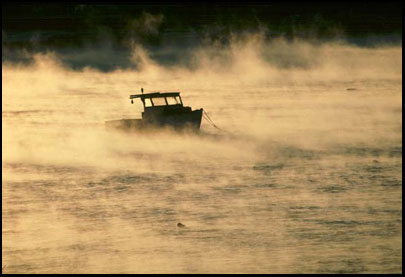Soon, on June 25, Little Night will be out in paperback. There's a new cover--different from the hardcover, which showed Poet's Walk in midnight blue wonder. This cover, propped up on my desk, draws my eye again and again. Two girls are hurrying along, holding hands, seemingly on their way to somewhere wonderful--one wears a crimson party dress, the other a carefree summer frock. They're sisters--there can be no doubt. It's the magic hour; the sun has gone down, but it still holds the day's golden light in its darkening blue. I wrote Little Night as an elegy to all sisters who are, or who have been estranged, who have deep childhood memories and love for each other, but whom life has torn apart. That's how it feels to lose a sister to estrangement--as if a limb has been ripped from your body, as if you're no longer the full person you once were. How can you be, who are you anymore, without your sister?
This week I watched the victim impact statements, given by Steven and Samantha Alexander, in the Jodi Arias trial in Maricopa County, AZ. I cried along with each as they addressed the jury because I could feel the pain in their words, the heartbreak and devastation over losing their sibling--their brother Travis. They spoke of how their family will never be the same with him gone.
Gone forever: unfathomable to think, to know, you'll never see your sibling again.
In Little Night Clare took action that Anne cannot forgive and Anne cuts her out. It's not death, but the estrangement is total--no contact for years. Years in sister terms are a lifetime. In real life we sometimes speak out, shout out, fail to bite our tongues, speak from the heart, speak from the gut, speak without thinking, speak after endless thinking--our intentions might be good, but they scrape our sister raw. She's not ready to hear. Or she'll never be ready to hear. You've gotten your facts wrong. You've attacked the man she loves. You've attacked her life and she'll never forgive you. She's out of there, and if you try to call she'll hang up and if you email she'll block your address.
These are ideas I explored in Little Night. What to say, how to act, is great action required when you think your sibling is in danger? The novel opens with Clare in prison. She has struck out with violence because, believing Anne's life was in danger, she attacked her sister's abuser. How do the sister's relationships go on from there? My mind is full of siblings who have lost each other. I followed a murder trial years ago. Ellen Sherman was murdered by her husband Ed, leaving behind a daughter, mother, sister, and friends. I keep thinking of her sister.
Domestic violence played a role in Ellen's death, as it does in Little Night. I know a lot about domestic violence, more than I wish I did. I've written about my experience in It Couldn't Happen to Me.
My thoughts go to my own family. In our case the missing sister is still alive. It's her choice to stay away. There is a special anguish knowing the sister you love so much is out there, but you can't reach her. In fact, you might have been the one to drive her away.
For now I look at the paperback cover, at those two lovely sisters, and I imagine they are taking care of each other, hurrying toward something wonderful. And they are going there together. It gives me peace, eases my heart.











